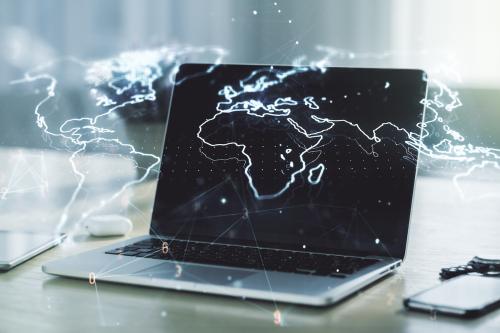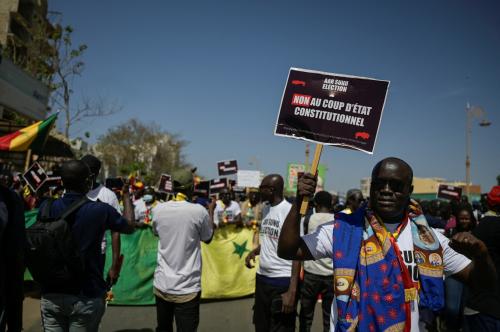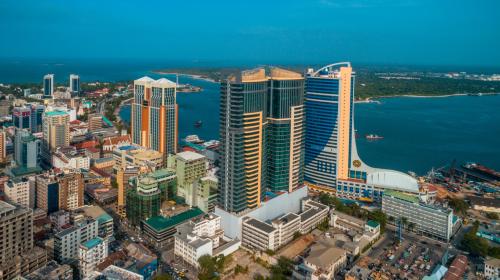South Sudan, independent from Sudan for just over two years, has been embroiled in a developing conflict between opposing forces that may be heading toward civil war. On December 15, fighting erupted between forces loyal to President Salva Kiir, an ethnic Dinka, and the former vice president, Riek Machar, whom Kiir sacked in July. Machar is an ethnic Nuer, highlighting the tribal component of the escalating conflict.
Brookings experts, many from Africa Growth Initiative (AGI), have been following developments in South Sudan since its independence in 2011. Highlights of that commentary include:
- AGI Director Mwangi Kimenyi and John Mukum Mbaku, a nonresident senior fellow, wrote on July 8, 2011, the day prior to South Sudan’s independence, that “the most important challenge facing South Sudan is creating a united nation. How South Sudan deals with harmonizing the claims of the various stakeholders and ethnic groups is the single most important determinant of whether it succeeds or fails as a nation.”
- Also in 2011, Laurence Chandy, a fellow with the Development and Governance Initiative, looked at the new country from the perspective of development’s role in fragile states such as South Sudan. Chandy highlighted South Sudan’s weak institutions, limited capacity to deliver services, lack of education and literacy, high maternal mortality ration, high poverty, and food insecurity.
- Mbaku and Jessica Smith wrote, in a chapter for “Foresight Africa: Top Priorities for the Continent in 2012,” that “the main challenges facing South Sudan include: creating a capable government free of corruption, ensuring a more equitable distribution of the Nile’s resources, addressing its dispute with the Republic of Sudan over oil royalties, and better securing its boundary.”
- In March 2012, Africa Research Fellow Anne Kamau and Witney Schneidman described South Sudan’s multi-billion dollar oil fee dispute with Sudan. “South Sudan,” they wrote, “needs to find a solution in its stand-off with Khartoum that will generate much needed revenue, not only to deliver an ‘independence dividend’ of investment in an improved quality of life for its citizens, but also to leverage financing for the pipelines to Lamu and Djibouti.”
- In June 2012, AGI produced a report on South Sudan, one year after independence. Authors explored issues including basic services, natural resource management, managing ethnic diversity, anti-corruption, and regional integration. As Mbaku and Smith noted in the introduction:
After many years of brutal civil war, South Sudan emerged with extremely poor infrastructure and a population with limited human capital. More importantly, the country was born with weak institutions that were not suited to the delivery of sustainable economic growth and development. Finally, while the people of South Sudan were largely united in the war against Khartoum, the country is to a large degree ethnically fragmented, with each group seeking to maximize its own objectives—a process that has significantly weakened the ability of the government to work toward national integration.
- Watch Witney Schneidman’s 2012 interview with Peter Biar Ajak, one of Sudan’s “Lost Boys” who endured years of violence and displacement as he made his way to the United States. Ajak founded the Centre for Strategic Analyses and Research.
- In June 2012, AGI hosted an event on the opportunities and obstacles for South Sudan at its one-year anniversary. Panelists included: Ambassador Princeton Lyman, U.S. special envoy to South Sudan and Sudan; AGI Nonresident Senior Fellow John Mukum Mbaku; John Prendergast, co-founder of the Enough Project; Peter Ajak, founder of the Centre for Strategic Analyses and Research in Juba; and Professor Nada Mustafa Ali, faculty member at the New School for Social Research. AGI Director Mwangi Kimenyi provided introductory remarks and moderated the discussion.
- In February 2013, Mbaku wrote:
The failure of South Sudanese citizens to engage in democratic institutional reforms to provide themselves with institutional arrangements that guarantee the rule of law has left the government unable to effectively manage ethnic and religious diversity, minimize corruption and public financial malfeasance, and provide the enabling environment for the creation of the wealth that can be used to fight poverty and enhance human development. …
South Sudan will remain in its underdevelopment trap until such a time that it provides itself, through democratic (i.e., bottom-up, people-driven, participatory and inclusive) constitution-making, with institutional arrangements that guarantee the rule of law. For, without a set of laws and institutions that adequately constrains civil servants and politicians, the latter will continue to consider themselves above the law and behave with impunity.
- Writing five months later at South Sudan’s second anniversary, Mbaku, again spoke to many of these issues, and again emphasized corruption in the public sector: “These problems and challenges,” he wrote,
are symptoms or manifestations of poorly developed laws and institutions. In fact, without a set of institutional arrangements that adequately constrain civil servants and politicians, the latter will continue to engage in growth-inhibiting behaviors, such as corruption and rent seeking, and derail the country’s development plans. Hence, the most important task for South Sudan as it celebrates its second anniversary of independence is state reconstruction through democratic constitution making to provide laws and institutions that guarantee the rule of law. Until this is done, the country will be unable to deal effectively and fully with the various problems that keep it poor and highly deprived.
- In August, after President Kiir sacked his cabinet and Vice President Machar, AGI Director Kimenyi and Guest Scholar Josephine Kibe wrote that “Sudan appears headed in the wrong direction.” They wrote that “such actions illustrate,”
a high concentration of power at the executive level and can have dire consequences for the country. The perception of abuse of power, whether real or not, can lead to dissent among citizens—history in similar situations has shown that this perception can result in a military coup, particularly when the Sudanese people feel that they are not inclusively represented in government (as is the case right now). Unless there is real change in the organs of governance and in particular institutions for consensual decision making, the likelihood of escalated ethnic conflict, or even military intervention, in the near future is not far-fetched.
- In November, the Brookings-LSE Project on Internal Displacement held a roundtable discussion to address solutions to the crisis of internal displacement in South Sudan. Tens of thousands of refugees in such countries as Ethiopia and Kenya returned to South Sudan in its lead-up to independence, and thousands more have been displaced internally by continued armed conflict and human-rights violations. Chaloka Beyani, IDP co-director and the United Nations Special Rapporteur on the human rights of internally displaced persons, said that “Development and peace can hardly be achieved when thousands of South Sudanese remain uprooted.”
- Finally, last week, just after the attempted coup in South Sudan’s capital, Kibe and Kimenyi pointed again to the “high concentration of power around the presidency and the general weakness of the country’s institutions” as contributing factors to the violence. They wrote of the underlying causes of the instability and potential consequences.
The recent coup attempt is a testimony of the inability of the leaders in SPLM to maintain unity. The country is run on patronage politics where the dominant figures, President Kiir and Machar, represent interests of the two largest ethnic tribes, the Dinka and Nuer, respectively. The legitimacy of the state can only be achieved if it provides essential services such as education, health and security to the citizens and, as it stands now, the country’s attention is not on providing these services. There is an urgent need for the government to act quickly to avert the threat of a civil war and instability in the country. International organizations and partners must insist on the country developing participatory institutions and broadening the political field. This can be done by encouraging civil society groups, providing assistance aimed at enhancing the legislative space, and targeting foreign aid and assistance towards the promotion of democracy. The opportunity cost of instability is too high for this very young country.
Follow all developments in South Sudan on AGI’s Africa in Focus blog and on the Brookings Sudan and South Sudan research topic page.



Commentary
A Timeline of Brookings Expert Commentary on South Sudan
December 27, 2013